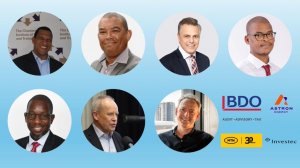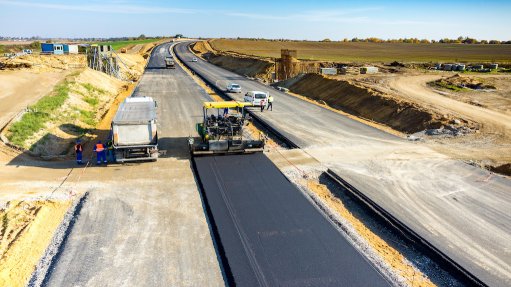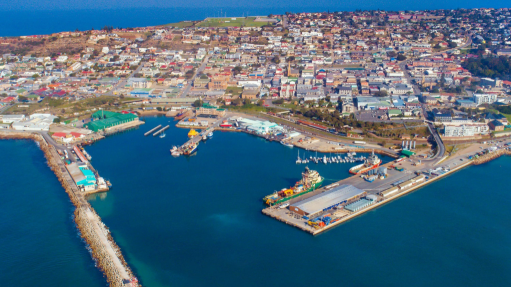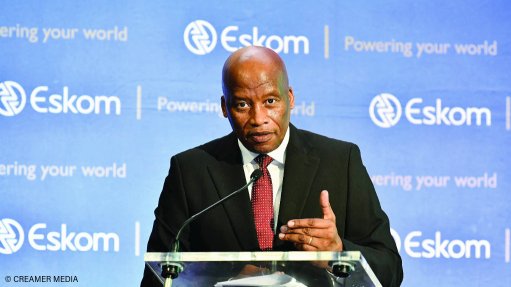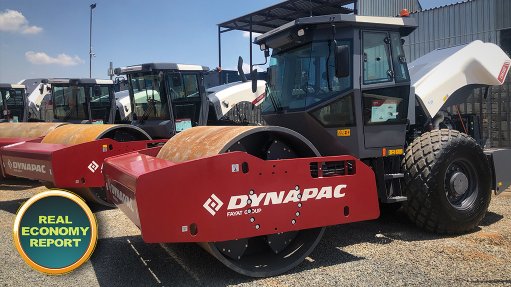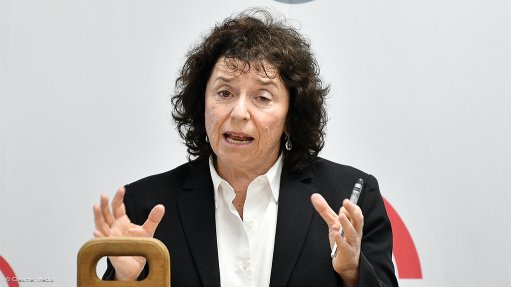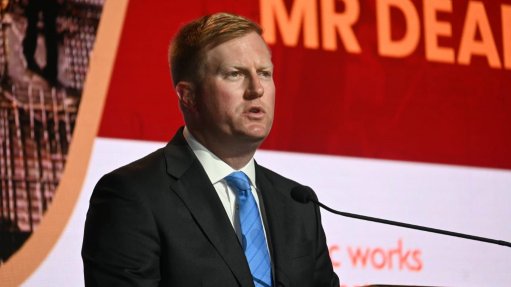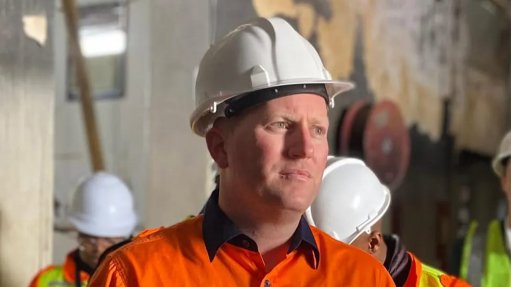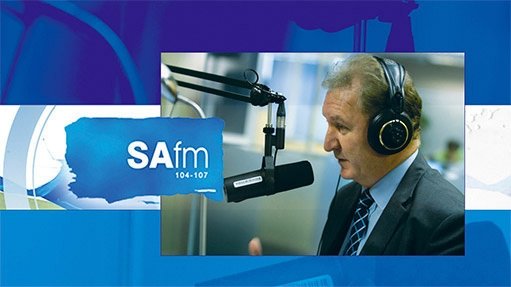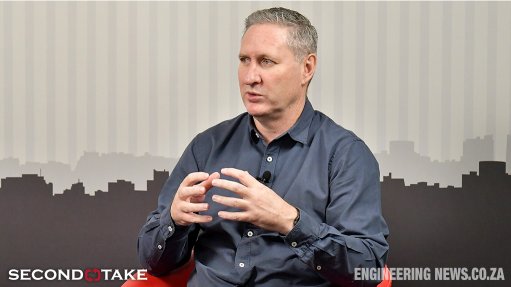Experts weigh in on increasingly decentralised freight logistics model

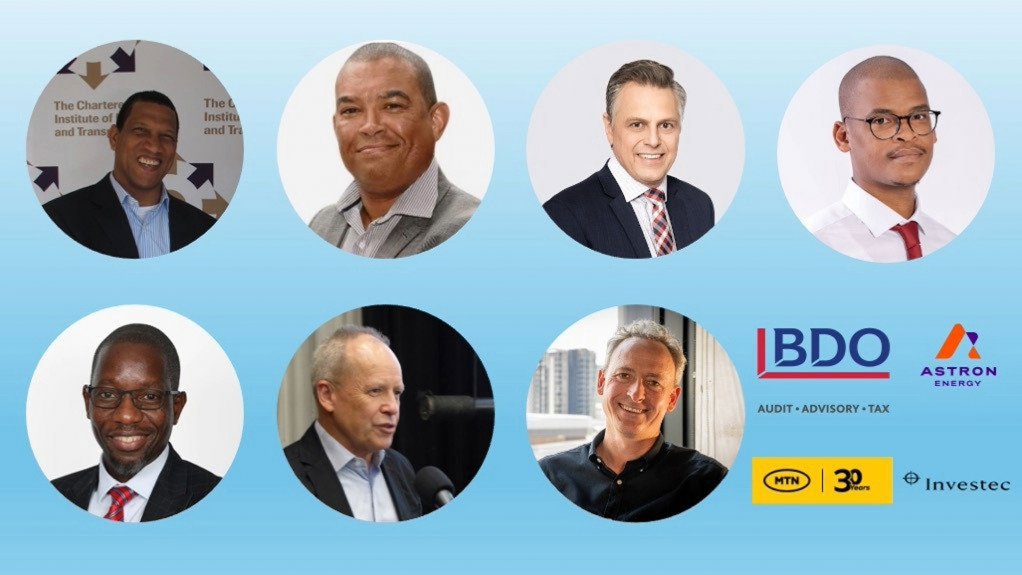
Experts weigh in on increasingly decentralised freight logistics model
Speakers who participated in the October 23 transport webinar
As government and the private sector work to accelerate reforms and improve efficiencies in the logistics sector, experts from a range of spheres have emphasised the importance of targeted investment and collaboration to ensure the sustainability and inclusivity of the economic growth that is enabled by this network industry.
In a webinar hosted by Creamer Media on October 23, Chartered Institute of Logistics and Transport president Elvin Harris pointed out how the country needed private-sector involvement in the resuscitation of rail and ports, in particular, but that it should not be over-saddled with issues that government should be dealing with.
Presidency project management office head Rudi Dicks said government’s focus, particularly through Operation Vulindlela, which was driving various structural reforms in the country, was to deal with inefficiencies in the logistics system by separating infrastructure and operations as respective focal areas, as well as creating greater competition.
“These efforts are intended to support State-owned entities such as Transnet, not take over management, in dealing with operational weaknesses. We are beginning to see green shoots from the reforms coming through,” he added.
In unpacking what caused the grave inefficiencies at Transnet in the first place, Dicks attributed the decline of the enterprise to years of underspending on maintenance and infrastructure, and mismanagement, as well as corruption stemming from State capture.
“The solution to get volumes up is involving the private sector to realise commercial opportunities. We are looking at it from a corridor point of view and pit-to-port. The biggest constraint, however, is the state of the infrastructure and we cannot expect the private sector to pay for everything,” Dicks stated.
He emphasised the importance of collaboration not only between the public and private sectors but across government departments and with academia and skilled experts internationally. “A clear roadmap with milestones also helps. With the right set of skills and the right people in leadership positions, which take the needs of everyone into account, we can eventually get the economic growth we want.”
Transnet chief strategy and planning officer Dr Andrew Shaw said the entity estimated that it required at least R34-billion of investment over the next five years to deal with critical infrastructure failures and another R50-billion of investment over the next five years for upgrading signalling to effectively sell train slots.
Additionally, Transnet estimates that R70-billion in investment will be needed over the next five years to fix the economic network, meaning the disposal of assets where there is no economic use case for them and on rightsizing the rail network.
He added that there were also costs involved with addressing vandalism on the rail network. For example, Transnet lost 1 000 km of copper cable owing to vandalism in 2023 alone.
On the port side, Shaw explained, Transnet was focused on increasing equipment availability, ship turnaround and crane movement per hour. “At this point we are still reliant on outdated and unreliable equipment across the ports.”
Business Unity South Africa deputy CEO Khulekani Mathe stressed the importance of the logistics system being based on credible evidence and research, with plans needing to be practically implementable. He also emphasised the importance of consistency.
“We cannot allow a situation where new administrations in coming years shift the focus to something else and try to reinvent the wheel. We must hold people accountable and stay the course, for example with the Freight Logistics Roadmap, which needs to be implemented to a tee.”
He also recommended that the right frameworks would ensure private-sector participation on commercially sound terms.
BDO audit partner Siyabonga Mthembu echoed Mathe’s sentiment, stating that mining and automotive companies were only coming on board with rail investment where the commercial terms and economic viability were sound.
He alluded to the problem of government having to redirect resources away from infrastructure investment to deal with crime, which partly stemmed from informal settlements popping up because people strove to move closer to places of work. If transport could become cheaper and more accessible for people located in remote areas, it would help to solve the issues of crime and induce more spend on infrastructure from government’s side, Mthembu added.
African Railway Industry Association chairperson and Traxtion CEO James Holley pointed out that the private sector was currently interested in investing in the bulk freight sector owing to economic viability, especially since two-thirds of South Africa’s freight volumes comprised bulk commodities. However, bulk freight only comprised 15% of the freight rail network in terms of infrastructure, with general freight making up the balance.
Holley explained that the investment case for general freight still needed to be improved, starting with Transnet spending more on maintenance and upgrades. He cited figures estimating that the State-owned logistics group needed to spend an overall R150-billion – at least – to bring the rail network back to an optimal condition.
“For more investment in general freight, you need high- quality infrastructure to accommodate more trains. On the one hand we have third-party access that can enable more trains, and on the other side private-sector participation projects that can design projects to uplift the condition of infrastructure – to make it more feasible to invest into trains.
“This is a massive opportunity for Transnet to reduce travelling times and increase the amount of trains on the network. The same trainset can, for example, generate six times the revenue if the network and efficiencies are improved,” Holley said.
Comments
Press Office
Announcements
What's On
Subscribe to improve your user experience...
Option 1 (equivalent of R125 a month):
Receive a weekly copy of Creamer Media's Engineering News & Mining Weekly magazine
(print copy for those in South Africa and e-magazine for those outside of South Africa)
Receive daily email newsletters
Access to full search results
Access archive of magazine back copies
Access to Projects in Progress
Access to ONE Research Report of your choice in PDF format
Option 2 (equivalent of R375 a month):
All benefits from Option 1
PLUS
Access to Creamer Media's Research Channel Africa for ALL Research Reports, in PDF format, on various industrial and mining sectors
including Electricity; Water; Energy Transition; Hydrogen; Roads, Rail and Ports; Coal; Gold; Platinum; Battery Metals; etc.
Already a subscriber?
Forgotten your password?
Receive weekly copy of Creamer Media's Engineering News & Mining Weekly magazine (print copy for those in South Africa and e-magazine for those outside of South Africa)
➕
Recieve daily email newsletters
➕
Access to full search results
➕
Access archive of magazine back copies
➕
Access to Projects in Progress
➕
Access to ONE Research Report of your choice in PDF format
RESEARCH CHANNEL AFRICA
R4500 (equivalent of R375 a month)
SUBSCRIBEAll benefits from Option 1
➕
Access to Creamer Media's Research Channel Africa for ALL Research Reports on various industrial and mining sectors, in PDF format, including on:
Electricity
➕
Water
➕
Energy Transition
➕
Hydrogen
➕
Roads, Rail and Ports
➕
Coal
➕
Gold
➕
Platinum
➕
Battery Metals
➕
etc.
Receive all benefits from Option 1 or Option 2 delivered to numerous people at your company
➕
Multiple User names and Passwords for simultaneous log-ins
➕
Intranet integration access to all in your organisation


